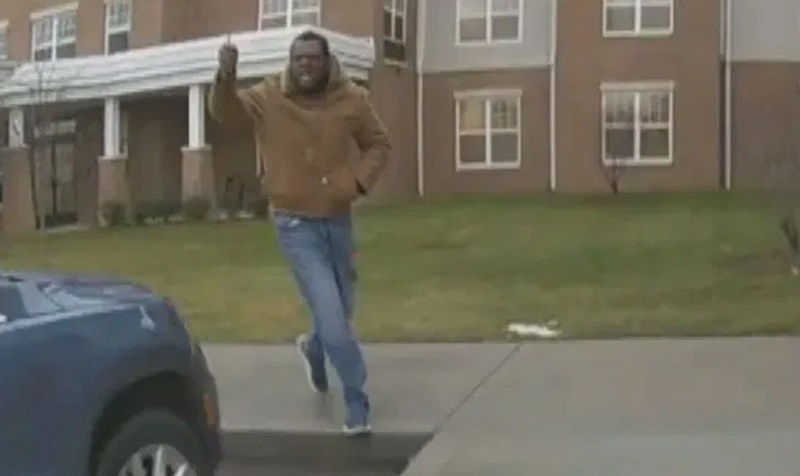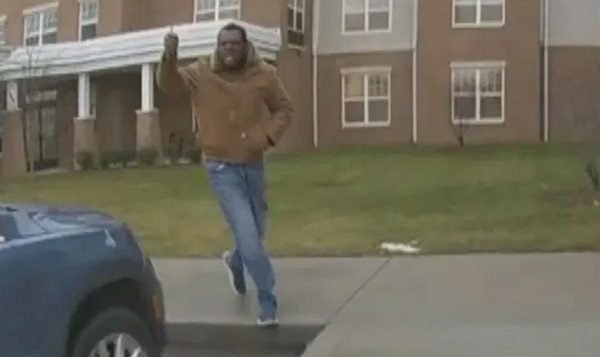

In Columbus, Ohio, a tragedy unfolded when police officers were forced to make a split-second decision, resulting in the death of Colin Jennings, a man in the midst of a mental health crisis. On that cold February morning, the Columbus Police Department responded to a 911 call describing Jennings’ erratic behavior and threats to himself and others. When officers arrived, they faced a man armed with a knife, unwilling to comply with their commands to deescalate. Body camera footage captures the tense, harrowing moment: Jennings lunged, knife raised, even after officers attempted to subdue him with non-lethal force. Ultimately, to protect themselves and the community, the officers resorted to lethal measures. A grand jury later declined to charge them, acknowledging that they acted in self-defense.
This incident serves as a stark reminder of the difficult, often misunderstood realities law enforcement officers face when confronting individuals in crisis. When a person is visibly armed and hostile, officers have only moments to assess the immediate threat to their lives and the lives of others. In these cases, it’s not just a matter of assessing mental health status; it’s about survival and protection. The duty of an officer is to neutralize threats that could put themselves and others at risk of serious harm or death.
Split-Second Decisions Amid Life-and-Death Stakes
The scrutiny on police officers in moments like these is intense, and the debate often turns to whether law enforcement should be responsible for handling people in the midst of mental health crises. But expecting officers to diagnose and accommodate every individual’s mental health needs under duress as an attack is happening is unrealistic and dangerous. They are trained to protect the innocent, not sacrifice themselves to perpatrators. Their responsibility is to assess immediate behavior and act accordingly to prevent harm, a mandate they courageously follow in an often thankless line of duty at the risk of their own lives.
In this case, the officers faced a clear, unrelenting threat. They tried to communicate with Jennings, attempted a non-lethal takedown, and exercised restraint as much as possible. Yet Jennings, allegedly pleading with the officers to shoot him, moved forward, weapon in hand. In that moment, any delay or hesitation from the officers could have resulted in grievous harm or death for them or bystanders. Policing is not a perfect science; it’s a rapid, reactive response to unpredictable human behavior.
The Role of Family and the State in Mental Health Crises
The responsibility for individuals with severe mental health issues does not, and should not, rest on police officers’ shoulders alone. People like Jennings—suffering, we are told, from mental distress and openly threatening harm—must be under the care of family, community support, and mental health professionals before they reach a crisis that demands police involvement. In cases where family members recognize a loved one’s deteriorating mental state but lack the resources or will to intervene, the state must step in. The responsibility of ensuring that mentally unstable individuals do not endanger themselves or others cannot be solely a reactive measure, taken after violence occurs. We need a proactive approach, where families, mental health institutions, and the state are committed to intervening before a tragedy like Jennings’ death occurs.
The state has the resources and authority to involuntarily commit individuals who display signs of imminent danger due to mental illness. This type of intervention should not be stigmatized as “punishment” but embraced as a humane effort to protect individuals from themselves and others. We cannot continue to place this burden on law enforcement officers, who are called to respond only once the crisis has reached its peak. By then, the situation has often escalated beyond the point of no return, and the only tools left to the officers are those that neutralize the immediate threat, not those that rehabilitate.
The Consequence of Denying Reality
If society denies officers the right to defend themselves against an advancing, weapon-wielding individual, it’s not just an injustice to the officers themselves but a disservice to the communities they serve. Law enforcement officers are trained to deescalate when possible, but they cannot be required to sacrifice their lives because someone whose family or the state has failed to assist in their hour of need demands it.
A hard truth must be acknowledged: if an individual’s mental state renders them unable to discern right from wrong, or safe from dangerous actions, they should not be left to fend for themselves. It is the duty of their loved ones or, if necessary, the state, to intervene. As tragic as it is for anyone to lose their life in such circumstances, tragedies like these will continue as long as we refuse to accept that mental health crises require proactive management long before law enforcement is involved.
Toward a Sustainable Solution
The case of Colin Jennings highlights a troubling pattern in America: too often, we rely on police officers to step in as the last line of defense against societal breakdowns in mental health care. But this must change. Families, communities, and policymakers must take a more active role in identifying and treating individuals who struggle with mental illness before they reach a crisis point. There should be dedicated, readily accessible resources and systems in place for preventive care, immediate intervention, and, if necessary, involuntary commitment.
If society expects law enforcement officers to keep themselves and the public safe, it must also protect them from being held to an impossible standard in being threatened by the mentally ill. Our officers should not be asked to gamble their lives on a “guess” as to a suspect’s mental state when confronted with immediate danger. Instead, we must work toward creating a safety net for those in crisis, one that prevents them from spiraling into harm’s way and placing officers in no-win situations.